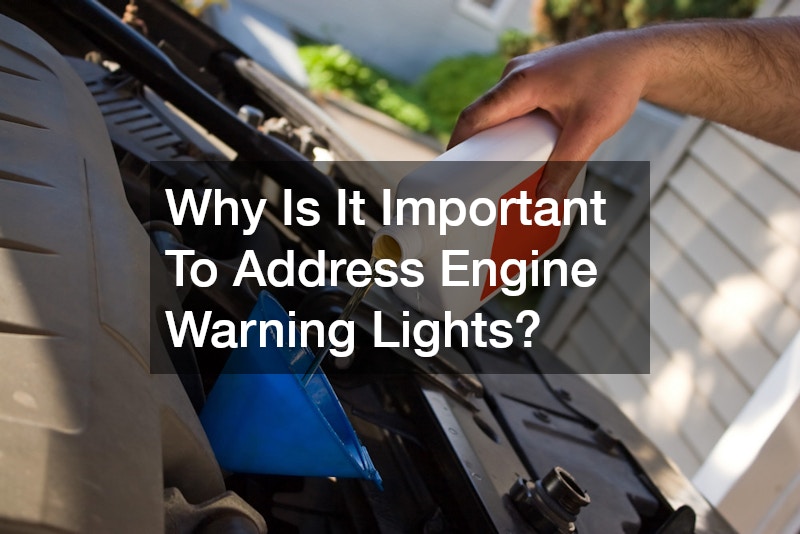Maintaining your vehicle’s performance and longevity goes beyond occasional fuel stops and washing. A well-cared-for car delivers reliability, efficiency, and a smoother driving experience for years. With consistent care and the right knowledge, you can prevent costly repairs, improve safety, and even retain your car’s resale value. This comprehensive guide walks you through the essential practices for keeping your car in top condition, covering everything from routine maintenance to advanced care techniques.
What Regular Maintenance Should I Perform On My Car?

Routine maintenance is the foundation of vehicle longevity. Consistently addressing small issues can prevent major repairs down the line and keep your car performing like new. Paying attention to fluids, tires, brakes, batteries, and filters ensures that each system functions optimally.
Oil And Fluid Changes
Changing your engine oil and other essential fluids is crucial to your car’s health. Fresh oil lubricates engine components, reduces friction, and helps regulate temperature. Other fluids, including transmission fluid, brake fluid, coolant, and power steering fluid, play a significant role in keeping your car safe and efficient.
Tire Inspections And Rotations
Tires are the only point of contact between your vehicle and the road, so regular inspection is vital. Checking tread depth, tire pressure, and overall condition ensures safer handling and improves fuel efficiency. Rotating tires periodically also promotes even wear, extending tire life. Local car repairs often include tire rotations and alignment checks as part of comprehensive maintenance packages.
Brake System Checks
Your brakes are essential for safety, making brake inspections a critical routine. Signs of worn brake pads, squeaking noises, or decreased responsiveness should never be ignored. Visiting a trusted brake repair shop for periodic checks ensures timely replacement and prevents more expensive repairs to the braking system.
Battery Health Assessments
A weak or failing battery can leave you stranded unexpectedly. Regular testing and inspection help identify potential problems before they escalate. Battery terminals should be cleaned, and the battery replaced if it shows signs of wear. Many auto services include battery testing as part of routine maintenance, giving drivers peace of mind.
Filter Replacements
Air filters, cabin filters, and fuel filters all influence engine performance and air quality. Clogged filters can reduce fuel efficiency and even strain the engine. Replacing them at manufacturer-recommended intervals ensures cleaner airflow, better performance, and a healthier interior environment.
How Do I Keep My Car Clean Inside And Out?
A clean car isn’t just about aesthetics. Proper cleaning and detailing protect your paint, prevent corrosion, and enhance the interior experience. Taking care of both the exterior and interior also preserves resale value and maintains comfort.
Exterior Washing Techniques
Regular exterior washing removes dirt, salt, and debris that can damage your paint. Using gentle, car-specific soap and soft cloths prevents scratches. Auto body shops often offer professional washing services that clean hard-to-reach areas and restore shine while protecting the finish.
Interior Detailing Tips
A tidy interior contributes to comfort and safety. Vacuuming carpets, wiping surfaces, and treating leather or fabric seats with appropriate cleaners prevents wear and maintains hygiene. Paying attention to hidden areas such as under seats and vents ensures a thorough clean.
Waxing And Polishing For Protection
Waxing and polishing create a protective layer over your car’s paint, shielding it from environmental damage. Professional auto services or vehicle ceramic coating applications can significantly enhance shine and offer long-term protection against UV rays and minor scratches.
Interior Fragrance And Air Quality
Beyond visual cleanliness, maintaining fresh air quality inside the car improves overall driving experience. Cabin filters should be replaced regularly, and natural or car-friendly air fresheners can help maintain a pleasant environment for passengers.
Cleaning The Engine Bay
While often overlooked, cleaning the engine bay can prevent dirt and grime from affecting critical components. A well-maintained engine compartment allows easier inspections and reduces the risk of corrosion or electrical issues, which is especially relevant for vehicles requiring car electrical repairs.
How Can I Improve My Car’s Fuel Efficiency?
Fuel efficiency depends on driving habits, vehicle condition, and maintenance. Small changes can lead to significant improvements in gas mileage while reducing overall wear and tear.
Driving Habits And Techniques
Smooth acceleration, moderate speeds, and reduced idling contribute to better fuel economy. Aggressive driving increases engine load and consumes more fuel. Observing efficient driving practices extends the life of mechanical components and reduces fuel costs.
Routine Maintenance Impacts
Properly maintained brakes, engine, and tires directly affect fuel efficiency. For example, worn brakes can create drag, and underinflated tires increase rolling resistance. Regular maintenance at auto repair shops ensures your car runs at peak efficiency.
Choosing The Right Fuel Type
Using the correct fuel recommended by the manufacturer ensures optimal engine performance. Premium fuel isn’t always necessary unless specified, and using the wrong type can reduce efficiency and cause engine knock, potentially leading to costly repairs.
Aerodynamic Modifications
Small aerodynamic improvements, such as removing roof racks when not in use or keeping windows closed at high speeds, can improve fuel efficiency. Even subtle changes in airflow can reduce drag and save fuel over long distances.
Reducing Vehicle Weight
Extra weight places additional strain on the engine and reduces fuel efficiency. Removing unnecessary cargo and limiting heavy modifications contributes to smoother performance and better mileage.
What Should I Know About Tire Care?

Tires are a key safety and performance element. Proper tire maintenance prevents accidents, extends tire life, and enhances driving comfort.
Understanding Tire Pressure
Maintaining correct tire pressure improves handling, reduces wear, and increases fuel efficiency. Checking pressure monthly and adjusting according to manufacturer recommendations ensures the best performance.
Recognizing Tire Wear Patterns
Uneven tire wear can indicate alignment or suspension issues. Monitoring wear patterns allows for early intervention and prevents premature replacement, saving money in the long term.
Rotating And Balancing Tires
Rotating tires ensures even wear, while balancing eliminates vibrations and enhances driving comfort. Many local car repairs include tire balancing as a standard service, promoting safety and longevity.
Selecting The Right Tires
Choosing tires suited to your driving conditions is critical. Seasonal tires, performance tires, or all-weather options all serve different purposes. Consult auto services or tire specialists to find the optimal choice for your vehicle.
Seasonal Tire Considerations
Switching between winter and summer tires enhances safety in extreme conditions. Proper storage and timely replacement ensure that your car remains reliable and that traction is maximized year-round.
How Can I Enhance My Car’s Performance?
Improving performance involves upgrades and modifications that optimize engine efficiency, handling, and overall driving dynamics.
Upgrading Engine Components
High-quality aftermarket parts such as air intakes, turbochargers, or performance camshafts can enhance power output and efficiency. Work with reputable auto services to ensure proper installation and compatibility.
Performance Chip Tuning
Chip tuning adjusts engine control settings to improve horsepower and torque. While offering performance gains, it’s essential to use certified technicians to avoid potential long-term damage.
Exhaust System Modifications
Upgrading the exhaust system improves airflow, increases power, and can enhance engine sound. Proper tuning is necessary to maintain emissions compliance while achieving performance gains.
Suspension And Handling Improvements
Upgraded suspension components, including shocks, struts, and sway bars, improve handling and ride comfort. Adjusting suspension geometry can enhance cornering stability and overall vehicle responsiveness.
Reducing Drag And Enhancing Speed
Streamlining the vehicle’s aerodynamics, lowering ride height, and removing unnecessary exterior additions can reduce drag and improve top-end performance. Combining these modifications with proper tire selection and maintenance maximizes results.
Why Is It Important To Address Engine Warning Lights?

Engine warning lights indicate potential issues that require immediate attention. Ignoring them can lead to severe damage and costly repairs.
Common Warning Lights Explained
Different warning lights signal varying concerns, from low oil pressure to engine misfires. Understanding these symbols allows drivers to act quickly and avoid escalation.
Diagnosing Warning Light Triggers
Modern vehicles have onboard diagnostics that help pinpoint issues. Using a diagnostic scanner or visiting auto repair shops can identify the root cause of warning lights efficiently.
How To Reset Warning Lights
Some warning lights may reset after maintenance or minor repairs. However, persistent lights indicate ongoing issues that require professional attention, particularly when connected to systems covered under car electrical repairs.
When To Seek Professional Help
Complex problems involving engine performance or electrical components should always be addressed by certified technicians. Prompt attention prevents further damage and ensures vehicle safety.
Preventing Future Light Activations
Regular inspections, timely maintenance, and proactive component replacement reduce the chances of unexpected warning lights. Maintaining detailed service records aids in consistent care.
What Should I Know About My Car’s Electrical System?
A functioning electrical system is essential for starting, lighting, and powering vehicle accessories. Proper care prevents breakdowns and enhances reliability.
Basic Electrical System Components
Batteries, alternators, fuses, wiring, and sensors make up the core of a car’s electrical system. Understanding their roles helps with troubleshooting and communication with technicians at auto repair shops.
Identifying Electrical Problems
Symptoms like dimming lights, blown fuses, or non-starting vehicles indicate electrical issues. Prompt inspection can prevent more severe damage and costly repairs.
Battery Maintenance Tips
Regular inspection and cleaning of battery terminals, along with ensuring secure connections, extend battery life. Replacement should be timely to avoid sudden failures.
Alternator Function And Care
The alternator keeps the battery charged and powers electrical systems. Signs of failure include flickering lights or unusual noises. Routine testing during auto services ensures consistent performance.
Upgrading Lighting Systems
LED or high-performance lighting upgrades improve visibility and reduce energy load. Professional auto body shops can install advanced lighting safely, ensuring optimal alignment and compliance with regulations.
How Do I Maintain The Car’s Exterior And Paint?

Exterior maintenance protects against environmental damage and preserves aesthetics, ensuring your vehicle looks new for longer.
Preventing And Repairing Scratches
Minor scratches can be buffed out or repaired with professional services. Bumper repair specialists handle more significant cosmetic damage, restoring your car’s appearance efficiently.
Paint Protection Films And Coatings
Applying paint protection films or vehicle ceramic coating provides a durable barrier against scratches, UV rays, and environmental contaminants. Professional auto body shops specialize in these services for long-lasting results.
Guarding Against Rust And Corrosion
Rust prevention is essential, especially in areas with high humidity or road salt. Regular washing and professional inspection for early signs of corrosion help maintain structural integrity.
Washing And Detailing Practices
Frequent washing removes contaminants that could damage paint. Combining this with periodic detailing ensures a pristine finish and prolongs the life of protective coatings.
Seasonal Paint Care Tips
Adapting your car care routine to seasonal conditions helps prevent damage from sun, snow, and road chemicals. Waxing before winter or applying UV protectant during summer maintains paint quality year-round.
How Often Should I Change My Car’s Air Filters?
Air filters keep your engine clean and your cabin healthy. Regular replacement ensures performance and efficiency.
Types Of Air Filters
Engine air filters, cabin air filters, and fuel filters all serve specific functions. Selecting the right type for your vehicle guarantees proper filtration and system protection.
Signs Of A Dirty Air Filter
Reduced acceleration, poor fuel efficiency, or unusual engine sounds indicate a clogged filter. Observing these symptoms allows timely replacement before damage occurs.
Replacing Your Air Filter
Follow manufacturer recommendations for replacement intervals. Many auto repair shops provide quick filter swaps as part of routine maintenance, ensuring your car breathes cleanly.
Impacts Of Clean Air Filters
Fresh filters improve airflow, enhance fuel efficiency, and reduce strain on engine components. Clean cabin filters also contribute to healthier air quality inside the vehicle.
Choosing The Best Filter For Your Vehicle
High-quality filters ensure optimal performance and durability. Consult local car repairs or auto services to select filters suitable for your specific make and model.
How Can I Prepare My Car For Different Seasons?
Seasonal preparation helps your vehicle handle extreme conditions safely while maintaining performance.
Winterizing Your Vehicle
Winter requires attention to battery health, tire traction, and antifreeze levels. Proper winter preparation prevents cold-related failures and maintains drivability.
Summer Preparation Tips
Summer heat affects engine cooling, air conditioning, and tire performance. Checking fluids, cooling systems, and tire pressure ensures optimal operation during hot months.
Handling Spring And Fall Transitions
Moderate seasons demand vigilance for leftover winter damage or summer wear. Fluid checks, tire inspections, and exterior cleaning prepare your car for seasonal changes.
Seasonal Fluid And Tire Changes
Switching to appropriate tires and refreshing key fluids ensures safe handling and longevity. Auto repair shops often offer seasonal packages that include all necessary adjustments.
Garage Storage And Vehicle Use
Proper storage protects your car from environmental damage and preserves performance. Using covers, maintaining battery charge, and monitoring tire condition during extended storage prevents deterioration.
Keeping your car running like new requires consistent attention to maintenance, cleaning, fuel efficiency, tires, performance, electrical systems, and seasonal preparation. Regular visits to reputable auto repair shops, brake repair shops, and auto body shops ensure professional care for complex issues like manual transmission repairs, bumper repair, collision repair, or car electrical repairs. Implementing preventive measures, such as vehicle ceramic coating and filter replacements, further extends your car’s life. By following these guidelines and seeking local car repairs or auto services when needed, you can enjoy a reliable, efficient, and visually appealing vehicle for years to come.










